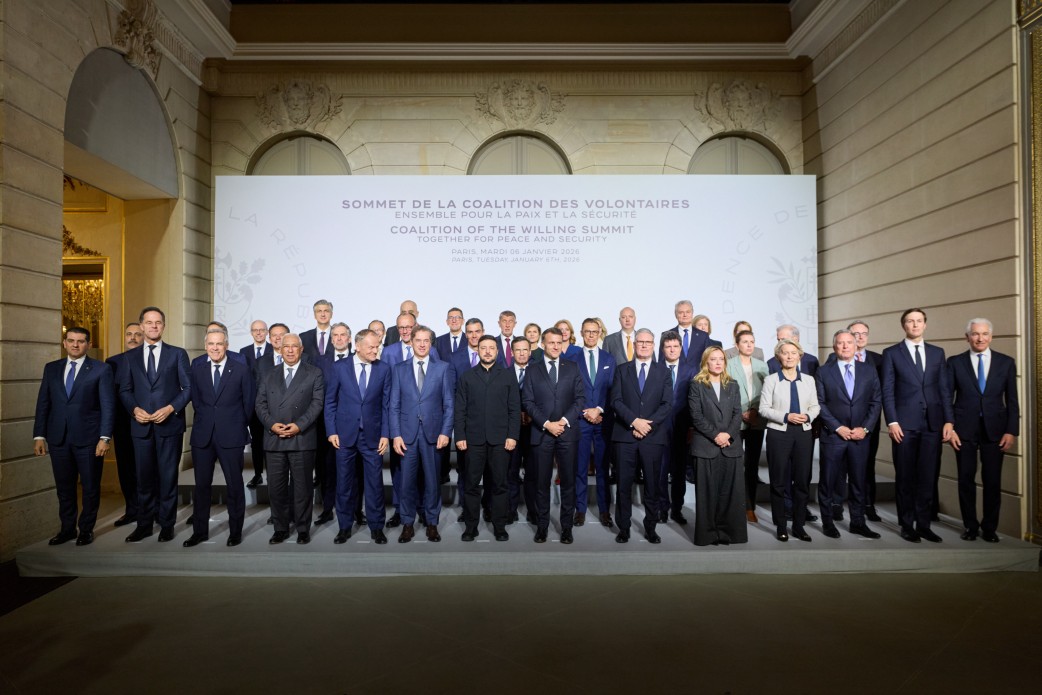Most EU citizens support further enlargement of the European Union, while opinion polls in candidate countries indicate widespread approval of joining the EU.
These are the findings of a recently published special Eurobarometer survey.
"The survey shows that 56% of EU citizens support further EU enlargement. Support is especially high among young people: around two-thirds of respondents aged 15 to 39 believe that (potential) candidates should join the EU as soon as they meet the necessary conditions," the statement reads.
A majority (56%) also believe that their own country will benefit from future EU enlargement. The most recognized advantages include stronger global influence, a larger market for EU businesses, more job opportunities, as well as greater solidarity and security.
At the same time, respondents express concerns about migration, corruption, crime, and the financial costs of enlargement. They emphasize the importance of ensuring that candidate countries uphold the rule of law, fight corruption, and protect fundamental rights, which are key elements of a credible and merit-based accession process.
However, 67% of citizens note that they are insufficiently informed about enlargement. In this regard, the European Commission aims to raise public awareness by providing clear and accessible information and engaging directly with citizens across the EU.
EU Commissioner for Enlargement Marta Kos stated: "The results show that EU citizens, and especially young people, support enlargement. The Eurobarometer sends another clear signal: people want a credible process, based on values and driven by real reforms. Together with the member states, we will directly engage with citizens, address their concerns, and demonstrate how enlargement brings peace, prosperity, and a more united Europe."
Polls show broad support for EU accession in the Western Balkans, with the exception of Serbia. Support for joining the EU is particularly high in Albania (91%) and North Macedonia (69%), where citizens expect benefits such as improved quality of life and open borders. In contrast, Serbia shows the lowest support for EU membership in the region — 33%. Among Eastern Partnership candidate countries, Georgia and Ukraine lead with 74% and 68% support, respectively. Overall, enthusiasm for joining the EU remains strong, though it is influenced by the specific economic and geopolitical challenges of each country.
In the Western Balkans, the EU’s positive image is highest in Albania (82%), where citizens value the EU’s support for economic development and anti-corruption efforts. Meanwhile, the EU’s image in Serbia (38%) suffers from low levels of trust. Among Eastern Partnership candidates, the EU’s image is also mixed: Moldova (55%), Ukraine (49%), and Georgia (43%).
Overall, the EU’s image tends to be more positive in the Western Balkans than in countries to the east of the EU, with the exception of Serbia, the European Commission notes. Low awareness of the European Union and its enlargement policy remains a common issue for all candidate and potential candidate countries, with many citizens feeling underinformed. Only 48% in Moldova and 39% in Montenegro consider themselves “well” or “very well” informed, while in Ukraine this figure has dropped to 23%, and to just 20% in Serbia. This highlights the need for more active and locally tailored EU communication efforts.
In Turkey, 50.7% of citizens report a positive attitude towards the EU, but only 40.6% consider themselves well-informed about the EU and its policies. Support for EU membership stands at 49.9%. According to respondents, the main obstacles to Turkey’s accession remain a lack of political will, deficiencies in the rule of law, and widespread corruption.
The survey was conducted between February and March 2025, collecting the opinions of over 26,300 citizens across the 27 EU member states.
Perception surveys were also conducted in Albania, Bosnia and Herzegovina, Kosovo, Georgia, Moldova, Montenegro, North Macedonia, Serbia, and Ukraine. A sample of 1,000 people was selected using a two-stage stratified sampling method, and face-to-face interviews (CAPI method) were carried out from May to June 2025.
A similar survey in Turkey was commissioned directly by the EU Delegation to Turkey. However, the results are not directly comparable with those from other countries or entities, as the methodology, sample, and questions differed.





















